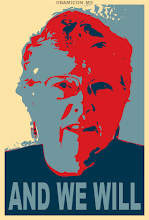Ellsbury an inspirational figure back home in Oregon
Man of the peoples
Ellsbury an inspiration at home, especially to Native Americans
By Gordon Edes
Globe Staff / November 25, 2007
MADRAS, Ore. - Liz Nelson, his first-grade teacher, wore his 6-year-old handprint over her heart, on the sweater her volunteer room mother had made as a Christmas present, little hands drawn everywhere.
Judy Vanek, a nurse in town who had wheeled a patient fresh from surgery out of the recovery room so he could get back in time to watch the World Series, carried a wallet-sized photo of him from high school, posing with Amanda Bailey with a crown on his head, king of the "Cinderella Ball."
The Eagle Thunder Drum Group from Warm Springs, the nearby Indian reservation where his mother and father worked and he had first played T-ball, boomed out a number in his honor, before Chief Delvis Heath, in a full eagle-feather headdress, draped a medallion around his neck. Later, in another ceremony at the reservation, he and his father, Jim, would be presented with hand-woven blankets.
The Red Sox had sent an official Series banner, which hung behind one basket in the high school gym where he never lost a center jump, outleaping opponents a half-foot taller. Jim Reese, his old high school baseball coach, had driven more than two hours in the rain to be here. US Sen. Gordon Smith sent some of his people with the American flag that had flown over the Capitol the day after the Sox won the Series. And the 27-year-old mayor, Jason Hale, gave him the key to the city.
His mother, Margie, and the oldest of his three younger brothers, the one who most looked like him, signed autographs. And on this day, anyway, it seemed as if every kid in town had the same name, because there was only one appearing on the back of most every jersey: "Jacoby."
Jacoby Ellsbury had come home, to this central Oregon farm town tucked away on the far side of Mt. Hood, after a month in which no one talked about much else at the Black Bear Diner than their native son, even if Jennifer Aniston was in town, making a movie. The ride he took in a black convertible through the streets of Madras, behind the fire trucks and police cars and ahead of the hay wagon carrying the Warm Springs Reds, the undefeated Little League team? The parade in Boston had been sweet, he said, but it couldn't match this.
"He was born in this area," said his father, Jim Ellsbury, who for 28 years has worked this land as a forestry expert for the Bureau of Indian Affairs, while Margie Ellsbury, a full-blooded Navajo, worked on the reservation as an early-education and special-education specialist. "These are his people. For him to be honored this way is wonderful."

